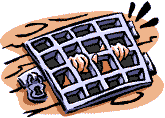...inicio...
Presentación
CURSO de Aprendizaje
Gramática
Listening
Libros
Lecturas
Programas
Ejercicios
Práctica
Recursos
y Actividades
Vocabulario
Teachers
First Certificate
Enlaces
Tablón de Anuncios
Servicios
Chat
Diccionario
Traducción
| Ahora
puedes tener La Mansión del Inglés en CD Rom |
| - ··· - |
| Consigue más de 150 programas Freeware y Shareware para mejorar tu Inglés |
Lee el texto
It was a maxim of my Uncle William's that no man should pass through Paris without
spending four-and-twenty hours there.
My uncle spoke out of a ripe experience of the world, and I honoured his advice by putting
up for a day and a night at "The Continental" on my way to--the Tyrol. I called on
George Featherly at the Embassy, and we had a bit of dinner together at Durand's, and afterwards
dropped in to the Opera; and after that we had a little supper, and after that we called on
Bertram Bertrand, a versifier of some repute and Paris correspondent to The Critic. He had
a very comfortable suite of rooms, and we found some pleasant fellows smoking and talking.
It struck me, however, that Bertram himself was absent and in low spirits, and when
everybody except ourselves had gone, I rallied him on his moping preoccupation. He fenced
with me for a while, but at last, flinging himself on a sofa, he exclaimed:
"Very well; have it your own way. I am in love--infernally in love!"
"Oh, you'll write the better poetry," said I, by way of consolation.
He ruffled his hair with his hand and smoked furiously. George Featherly, standing with his back to the mantelpiece,
smiled unkindly.
"If it's the old affair," said he, "you may as well throw it up, Bert. She's leaving Paris
tomorrow."
"I know that," snapped Bertram.
"Not that it would make any difference if she stayed," pursued the relentless George. "She flies higher than the paper trade, my boy!"
"Hang her!" said Bertram.
"It would make it more interesting for me," I ventured to observe, "if I knew who you were talking about."
"Antoinette Mauban," said George.
"De Mauban," growled Bertram.
"Oho!" said I, passing by the question of the `de'. "You don't mean to say, Bert--?"
"Can't you let me alone?"
"Where's she going to?" I asked, for the lady was something of a celebrity.
George jingled his money, smiled cruelly at poor Bertram, and answered pleasantly:
"Nobody knows. By the way, Bert, I met a great man at her house the other night--at least,
about a month ago. Did you ever meet him--the Duke of Strelsau?"
"Yes, I did," growled Bertram.
"An extremely accomplished man, I thought him."
It was not hard to see that George's references to the duke were intended to aggravate poor
Bertram's sufferings, so that I drew the inference that the duke had distinguished Madame
de Mauban by his attentions. She was a widow, rich, handsome, and, according to repute,
ambitious. It was quite possible that she, as George put it, was flying as high as a personage
who was everything he could be, short of enjoying strictly royal rank: for the duke was the
son of the late King of Ruritania by a second and morganatic marriage, and half-brother
to the new King. He had been his father's favourite, and it had occasioned some unfavourable
comment when he had been created a duke, with a title derived from no less a city than the
capital itself. His mother had been of good, but not exalted, birth.
Contesta las siguientes preguntas de comprensión
Choose the best answer, a), b) or c)
1. This part of the story takes place in 2. The conversation between the three men happens 3. Who is in love? |
© Copyright 2001 Craig Wealand & Domingo Blanco - Todos los Derechos Reservados. -